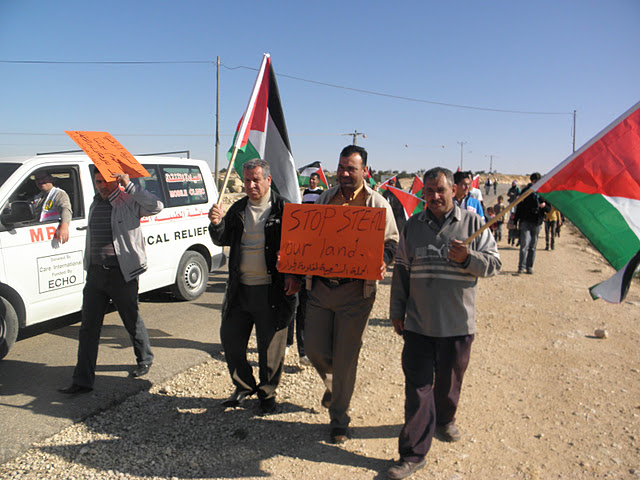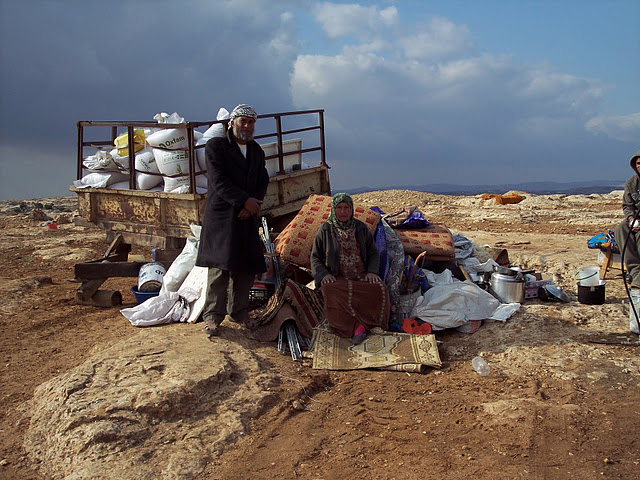Tag: Susiya
-
Susya: Entire village under threat of demolition, several hundred protest
By Nina Larsson 22 June 2012 | International Solidarity Movement, West Bank On Friday, June 22, several hundred Palestinians and solidarity activists gathered in Susya to demonstrate against the demolition orders imposed on them. Earlier this week, Israel issued orders threatening to demolish the entire the southern West Bank village of Susya. At least 5…
-
Susiya continues to pave the road despite Israeli settlement activity
by Aida Gerard 4 December 2011 | International Solidarity Movement, West Bank One 17 year old boy from Yatta, Khalid Al Hurush, was arrested during a peaceful action in Susiya, and several people were beaten by the Occupation Forces on December 3rd, 2011. On Saturday at 10 AM, around 60 demonstrators gathered in Susiya to demonstrate…
-
Four houses and one mosque fall to Israeli demolitions in Susiya
by Fida Far 25 November 2011 | International Solidarity Movement, West Bank Four houses and one mosque were destroyed this morning, November 24th, in the villages in the south of the West Bank. Around 10 am, fifty soldiers and seven police cars arrived to village Susiya. Two bulldozers destroyed the house of Musa Magna’s family…


